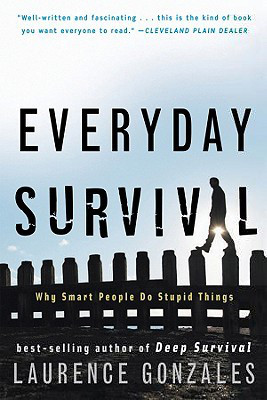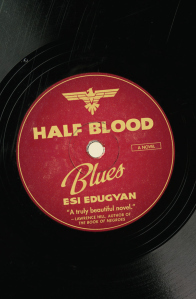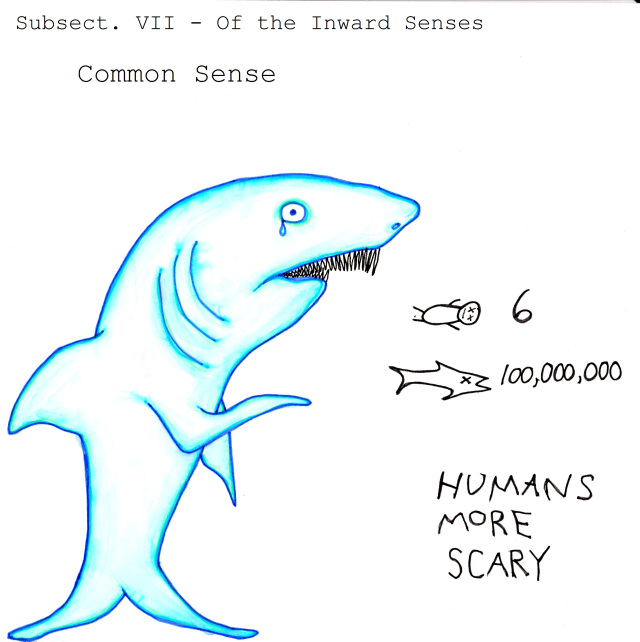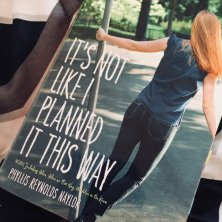 One of my goals for the new year is to continue expanding my reading horizons, specifically by reading more non-fiction books. I was glancing through the non-fiction section at the library and found this promising book, posing a great question: why do smart people do stupid things?
One of my goals for the new year is to continue expanding my reading horizons, specifically by reading more non-fiction books. I was glancing through the non-fiction section at the library and found this promising book, posing a great question: why do smart people do stupid things?
“Curiosity, awareness, attention,” Laurence Gonzales writes. “Those are the tools of our everyday survival…We all must be scientists at heart or be victims of forces that we don’t understand.” In this fascinating account, Gonzales turns his talent for gripping narrative, knowledge of the way our minds and bodies work, and bottomless curiosity about the world to the topic of how we can best use the blessings of evolution to overcome the hazards of everyday life.
Everyday Survival will teach you to make the right choices for our complex, dangerous, and quickly changing world—whether you are climbing a mountain or the corporate ladder.
My Thoughts?This book was really fun, but took some rambling turns I hadn’t expected. It begins by posing the not-so-simple question, asking why human beings, the so-called pinnacle of evolution, do some really dumb things. Gonzales uses a morbidly humorous yet intellectual storytelling style to answer this question.
He begins by examining human beings as individuals, breaking down how the homosapien mind forms patterns and scripts to simplify the actions necessary for everyday living. But sometimes these habitual scripts can lead to unintended consequences. The book walks us through stories of airline pilots, tsunami victims, NASA scientists, cavers, digital entrepreneurs, mountain climbers, and others who allowed individual or organizational scripts to get in the way of intelligent decisions.
Each anecdote was painted in clear yet poetic language, submerging the reader directly into the thick of the scenarios. Gonzales did get carried away with the flowery language at times ,but I still found many of the stories interesting enough to share with my husband.
Beyond the initial discussion of psychology, the book takes a turn towards the political arena. At this point it becomes a bit preachy, discussing issues with the overuse of fossil fuels and global warming in depth. The information was good, and especially timely with the current issues in politics right now, though the repetition got tiresome. There was even a section on humanity’s path to genocide and Nazism. Although the book was published in 2009, I felt like Gonzales was referring to specific events in current news.
The end of the book delved into more scientific discussions, specifically referencing entropy and how humans beings are simply tools of entropy, breaking down our world as part of the universal race toward chaos. Black holes, fractals, Alzheimer’s disease, oceanography, Pangaea, bacterial reproduction, bonobos… the topics of discussion fell all over the map. The scientific theories and concepts referenced were sound, but often oversimplified, which left me feeling a bit disappointed after the book’s initial humor and psychological insights.
Overall I give Everyday Survival Three out of Five Stars. Although over flowery and preachy at times, it presented and intriguing view of humanity along with a timely message on the importance of critical thinking and creativity.
Happy Reading! Advertisements Share this:




